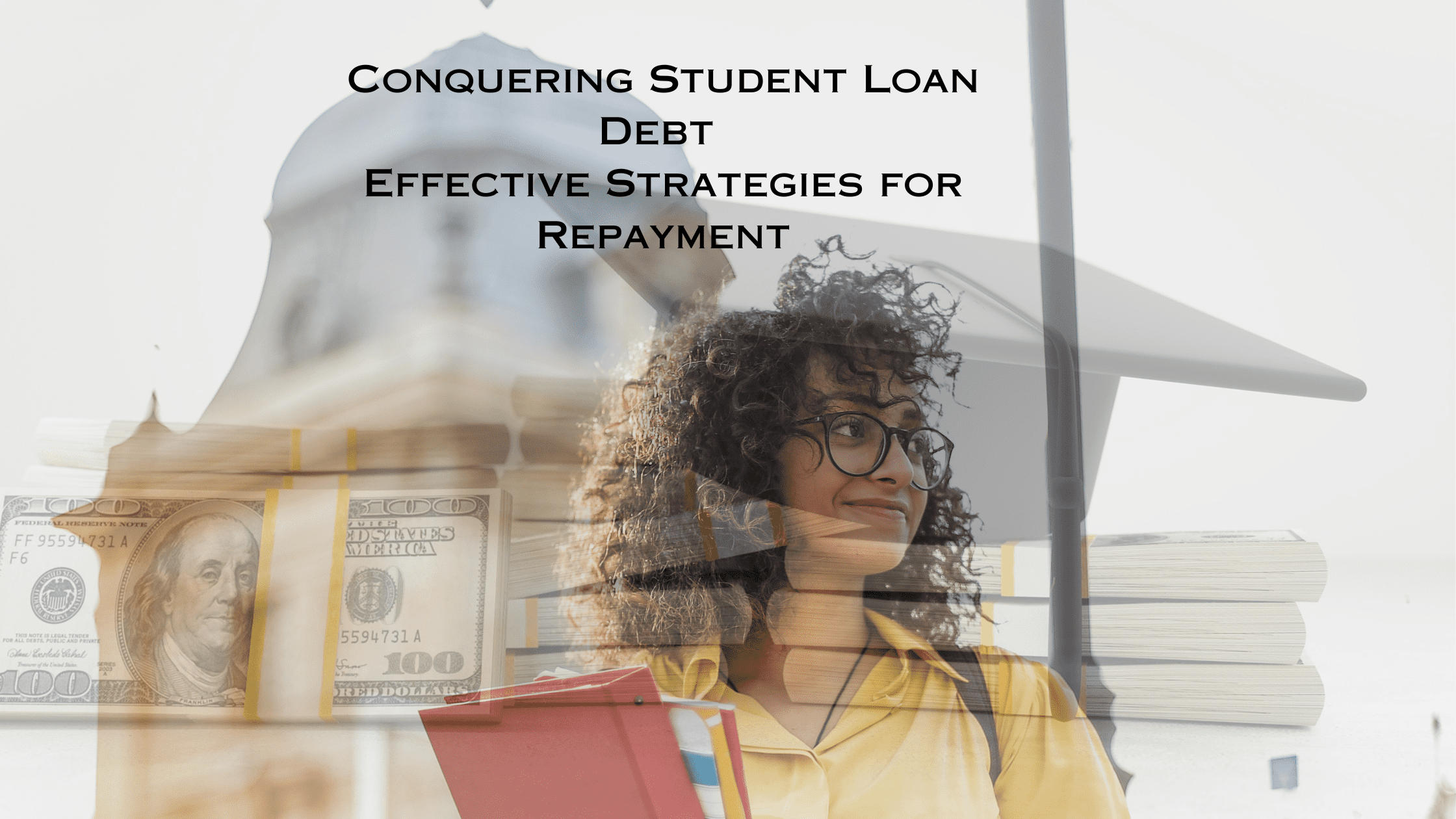Student loan debt has become a significant burden for many individuals pursuing higher education. As graduates enter the workforce, repaying these loans can feel overwhelming. However, with careful planning and strategic approaches, it is possible to tackle student loan debt and pave the way toward financial freedom. In this article, we will explore practical solutions to help you repay your student loans efficiently.
- Understand Your Loan:
- Create a Budget:
- Explore Repayment Options:
- Prioritize High – Interest Loans:
- Increase your Income:
- Refinance your Loans:
- Seek Employer Assistance:
- Live Frugally:
- Conclusion:
- Frequently Asked questions:
- 1. Can I defer my student loan payments if I'm facing financial hardship?
- 2. Will consolidating my loans affect my credit score?
- 3. Are there any tax benefits associated with student loan repayment?
- 4. Can I make extra payments towards my student loans to pay them off faster?
- 5. Is it possible to switch repayment plans if my financial situation changes?
- Reference links:
- Notes:
Understand Your Loan:
The first step in conquering student loan debt is gaining a comprehensive understanding of your loans. Take the time to review your loan agreements, noting interest rates, repayment terms, and any available grace periods. This knowledge will enable you to develop a customized repayment plan tailored to your circumstances.
Create a Budget:
Developing a detailed budget is crucial to effectively managing your finances. Assess your income and expenses to determine how much you can allocate toward loan repayments each month. By prioritizing loan payments within your budget, you can ensure consistent progress in reducing your debt.
Explore Repayment Options:
There are several repayment options available that can make your student loan burden more manageable. Consider the following alternatives:
a. Income-Driven Repayment (IDR) Plans: These plans calculate your monthly payment based on your income, making it more affordable. Research and choose the option that best suits your financial situation.
b. Loan Consolidation: Consolidating your loans combines them into a single loan with a fixed interest rate. This simplifies repayment and potentially lowers your monthly payments.
c. Loan Forgiveness Programs: Investigate loan forgiveness programs such as Public Service Loan Forgiveness (PSLF) or Teacher Loan Forgiveness. These programs can provide significant relief for individuals working in specific professions or public service.
Prioritize High – Interest Loans:
When allocating your monthly payments, focus on high-interest loans first. By tackling these loans aggressively, you can minimize the amount of interest accruing over time. Paying off higher-interest loans earlier will save you money in the long run.
Increase your Income:
Finding ways to boost your income can accelerate your debt repayment journey. Explore opportunities for side gigs, freelancing, or part-time work. You can allocate this additional income directly toward paying down your student loans, helping you become debt-free sooner. Think of have a side hustle which can build some passive income.
Refinance your Loans:
If you have a good credit score and steady income, refinancing your student loans may be a viable option. By refinancing, you can secure a lower interest rate, potentially reducing your monthly payments and overall loan burden. However, be sure to weigh the pros and cons and consider the impact on federal loan benefits before proceeding.
Seek Employer Assistance:
There are some employers offer student loan repayment programs includes as part of benefits. Research companies in your industry or inquire with your current employer about such programs. This assistance can provide significant relief and expedite your debt repayment process.
Live Frugally:
While repaying student loans, adopting a frugal lifestyle can help you free up additional funds. Cut back on discretionary expenses, dine out less frequently, and find cost-effective alternatives for entertainment. Redirect the money saved toward paying off your loans faster.
Conclusion:
Repaying student loans may seem like a daunting task, but with strategic planning and disciplined execution, you can overcome this financial challenge. By understanding your loans, creating a budget, exploring repayment options, and implementing effective strategies, you will be well on your way to financial freedom. Remember, every step you take brings you closer to a debt-free future. Stay determined, remain consistent, and celebrate your progress along the way
Frequently Asked questions:
1. Can I defer my student loan payments if I’m facing financial hardship?
Ans: Yes, if you are experiencing financial hardship, you may be eligible for loan deferment or forbearance. Contact your loan servicer to discuss your options and understand the terms and conditions.
2. Will consolidating my loans affect my credit score?
Ans: Consolidating your loans should not have a significant impact on your credit score. However, it is essential to research and understand the terms and implications before proceeding. It’s advisable to consult with a financial advisor or loan counselor to make an informed decision.
3. Are there any tax benefits associated with student loan repayment?
Ans: Depending on your income and loan situation, you may be eligible for certain tax benefits related to student loan interest. Consult with a tax professional or refer to IRS guidelines for specific details.
4. Can I make extra payments towards my student loans to pay them off faster?
Ans: Yes, making extra payments towards your student loans can help reduce your overall debt and save on interest. Confirm with your loan servicer that any additional payments are applied directly to the principal balance.
5. Is it possible to switch repayment plans if my financial situation changes?
Ans: Yes, you can switch repayment plans if your financial circumstances change. Contact your loan servicer to discuss options for modifying your repayment plan to better align with your current situation.
Reference links:
- Federal Student Aid: https://studentaid.gov/
- Consumer Financial Protection Bureau (CFPB) – Student Loans: https://www.consumerfinance.gov/paying-for-college/student-loans/
Notes:
Please note that the provided links are for reference purposes and it is always recommended to verify information and consult official sources or financial professionals for personalized advice regarding student loan repayment.

